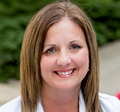Responding When Patients “Decide to Be Heard”: A Comprehensive, Community-Based Approach to Advance Care Planning
 By Abi Katz, DO, medical director of Premier Health Advanced Illness Management
By Abi Katz, DO, medical director of Premier Health Advanced Illness Management
Recently I spent the evening with a retired philosophy professor and his wife to discuss his Advanced Directives. They wanted to know if he needed to have a DNR. He said, “For several years I have been trying to think about my death in a rational manner. I want to accept my aging and my death without prolonging things.” His biggest fear was that “even comfort care would be an opportunity for dying to take longer than it should.” At 89 years old and married for 65 years, he is looking forward to his 90th birthday party. He also has late stage Parkinson’s, peripheral vascular disease, and has recently had several hospitalizations due to frequent falls. We talked through what matters most to him, his fears, what “living well” means to him, what he would want to have happen in the case of a sudden change in his condition (for example, if he was unable to know who he was or who he was with), and how he would like his wife to make decisions for him. He was clear and articulate, and he and his wife both learned some important values and goals. His wife felt more confident in approaching future decisions she may need to make.
 I share this story to advocate for a cultural shift in our approach to advance care planning. That is why Premier Health is partnering with other providers and agencies in the Dayton region to launch “Decide to Be Heard,” a regional model based on “Respecting Choices,” an internationally recognized, evidence-based model of advance care planning. Created in 1993 by Gunderson Health System in LaCrosse, Wis., Respecting Choices has been adopted by more than 100 cities around the world. It takes a community-based approach, providing trained facilitators to help people engage in productive conversations with their health care agent and loved ones and complete advance care directives. In LaCrosse, 80 percent of residents have participated in Respecting Choices and have established advance care directives that are accessible to medical providers.
I share this story to advocate for a cultural shift in our approach to advance care planning. That is why Premier Health is partnering with other providers and agencies in the Dayton region to launch “Decide to Be Heard,” a regional model based on “Respecting Choices,” an internationally recognized, evidence-based model of advance care planning. Created in 1993 by Gunderson Health System in LaCrosse, Wis., Respecting Choices has been adopted by more than 100 cities around the world. It takes a community-based approach, providing trained facilitators to help people engage in productive conversations with their health care agent and loved ones and complete advance care directives. In LaCrosse, 80 percent of residents have participated in Respecting Choices and have established advance care directives that are accessible to medical providers.
Pilot testing begins Our local partners include Kettering Health Network, Ohio’s Hospice, University of Dayton, and Wright State University, as well as the Greater Dayton Area Hospital Association, which is providing coordination and extensive administrative support. Pilot testing involves developing educational tools, refining workflow and operational processes to manage change at each pilot site, inviting a target population to participate in a conversation, and training facilitators to have a structured conversation about advance care planning. So far, we have trained 26 facilitators, including physicians, nurses, social workers, chaplains, and volunteers.
The Respecting Choices model helps us begin conversations about a person’s goals for care and wishes while they are still healthy, thereby moving the conversation upstream and making it part of the continuum of care. Our comprehensive approach helps people complete advance directives that are inclusive of personal values and beliefs, and communicate their wishes with their family members, loved ones, and health care providers.
This summer, Premier Health and Kettering Health Network began a six-month pilot study with eight pilot sites that are voluntarily hosting trained facilitators and advance care planning conversations. At Premier Health, this includes a test with Premier’s Healthy Living program for employee wellness, patients who are not yet on dialysis receiving treatment at Miami Valley Hospital’s renal unit, and patients who receive a social work order for Fidelity Health Care’s home health services. Each conversation takes about an hour, and participants are encouraged to bring a loved one if desired.
The conversation I described above followed our local model with Decide to be Heard. The outcome of our conversation provided the patient the opportunity to express his most precious values and beliefs while educating the future health care agent with additional knowledge and skills she needs to make the many potential decisions, as well as completing the legal documentation needed for the health care team to respond.
Be part of it Creating partnerships with community leaders and organizations is essential to the success of Decide to be Heard. You can help! If you are part of a professional group, church, or other community organization and willing to present information about advance care planning, or have an interest in being a future pilot site, please let me know by emailing me at alkatz2@premierhealth.com. Together, we can help people in our community understand the benefit of advance care planning for them and for those who may one day need to speak for them when they are no longer able to speak for themselves.
Back to the November 2017 issue of Premier Pulse

